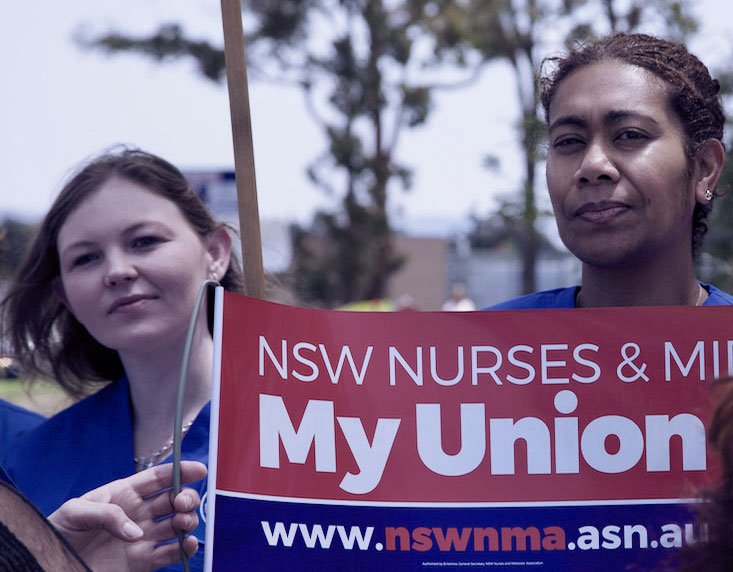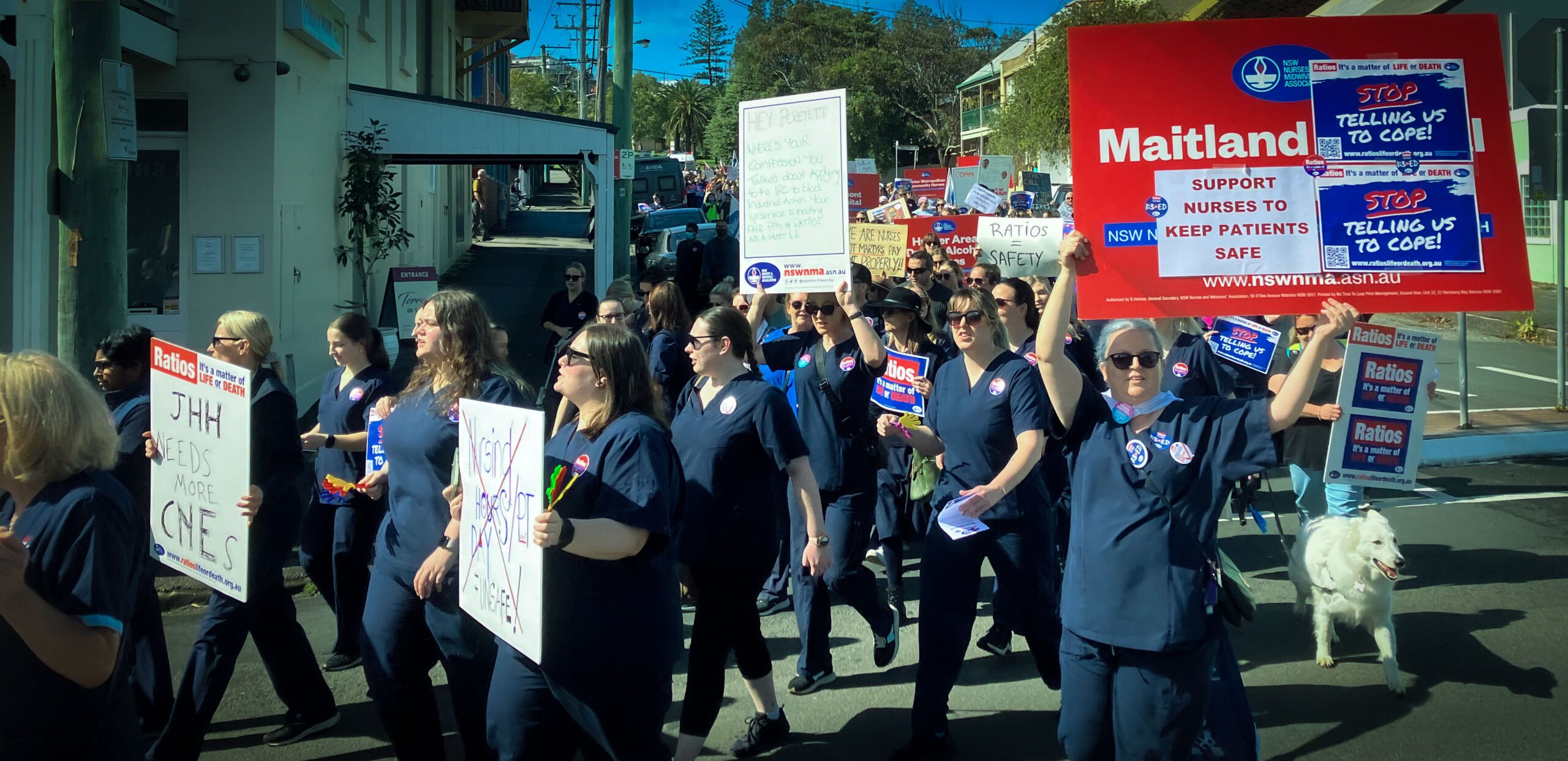There have been relentless attacks on public services around the world over the last couple of decades – overt or covert. Public services have been slashed in the name of bringing budgets to surplus, with ordinary citizens bearing the brunt of these cuts. The solution to redress this? An FTT – a financial transactions tax of around 0.05 percent on institutional trades of currencies, stocks, bonds, derivatives and interest rate securities, which could raise billions of dollars annually.
The international campaign for a FTT, also sometimes known as the Robin Hood Tax, has been led by the global union federations Public Services International (PSI) and International Trade Union Confederation (ITUC), Oxfam and more recently National Nurses United in the US, concerned about the unrelenting pursuit of corporate greed at the expense of the ordinary citizens.
The NSWNMA has been involved in a campaign to lobby the Australian government to introduce a Financial Transactions Tax (FTT) since 2011. The billions of dollars raised from this tiny tax on financial speculation would be used on much needed funding increases in health and aged care programs. It’s a tax on the speculative economy, not the real economy, and therefore does not impact individuals in their day to day financial dealings.
The NSWNMA became aware of the growing international push for greater taxation of institutional financial transactions through its membership of Public Services International (PSI) and its involvement with National Nurses United (NNU) in the US. The NSWNMA is also partners in Global Nurses United and as part of their charter are committed to pursuing a FTT.
The NSWNMA Council strongly supports this push by international nursing and public services organisations for the introduction of this tax around the world.
The NSWNMA campaign was kicked off at the G20 meeting at Cannes, France, in November 2011 where NSWNMA President, Coral Levett, and Assistant General Secretary, Judith Kiejda, joined nurses and midwives from countries such as the US, South Korea, France and Ireland.
The commitment for a FTT is growing, particularly in Europe, where some countries now see their public services being undermined because of the ongoing fallout from the Global Financial Crisis – a crisis created by speculative practices employed by banks and other financial institutions.
Eleven countries, including Germany and France but not the UK, have agreed to impose the tiny tax that could raise as much as €35bn in much needed revenue.
The 2013 budget crisis in the US renewed calls for a FTT as millions of Americans were kept from going to work while Wall Street continued to rake in billions in profits. A recent poll in the US showed that most people are in favour of the tax – including billionaires Warren Buffet and Bill Gates.
WHAT AN FTT COULD MEAN IN AUSTRALIA
In recent years the tax burden in this country has increasingly fallen on families and pensioners, while corporate and financial taxes have been reduced in the name of supposed efficiency and job creation.
This narrowing of the tax base has created a significant squeeze on government revenues and the capacity of governments to continue to provide high quality public services. It has also increased the cost of living for most people, seen a spreading of user pays charges for basic public services and a drive to hold down wage rates in key public service areas such as health, aged care and community services.
All of this is occurring against a backdrop of bullying by global capital, which thinks its tax burden should continually be reduced and which regularly threatens to withdraw its funds from any country that tries to make it pay its way. There’s also a push by governments to increase the GST, which would only continue to burden ordinary working households rather than taxing those who enjoy substantial profits.
The Professor of International Finance Law at the University of NSW, Ross Buckley, estimates that a 0.05 percent financial transactions tax collected on Australian ‘over-the-counter’ and exchange-traded market transactions between 2005-06 and 2008-09 would have raised 48 billion Australian dollars – an average of $16 billion each year.







